
Paul White and a panel of experts provided insights into the cybersecurity risks businesses face today.
In a frank, detailed narrative, Paul White unpacked exactly what unfolded when European cyber criminals hacked into his company’s data, hijacked it, and demanded nearly $1.7 million in bitcoins to get it back, threatening New England’s largest commercial flooring contractors with irreversible losses. The first-hand account that White gave on Oct. 16 at the University of New England Harold Alfond Forum rendered the audience, filled with business students, silent.
“If you can imagine doing a painting or writing a book and you have one copy and somebody burns it and it's completely gone, that was the extent of the damage for two years' worth of our main estimating department … So, the damage was pretty extensive,” said White, chief executive officer of the Paul White Company based in Portland, Maine.
White’s story served as a case study for four industry experts at the UNE College of Business’ second installment of the Spark Business Series, “The Business of Cyber Defense: How Leaders Prepare for and Recover from Cyber Threats.” The panel — which included some of the experts in ransomware attacks and crisis response on White’s defense team —offered a lively discussion on Oct. 16 that was equal parts frightening and animated.
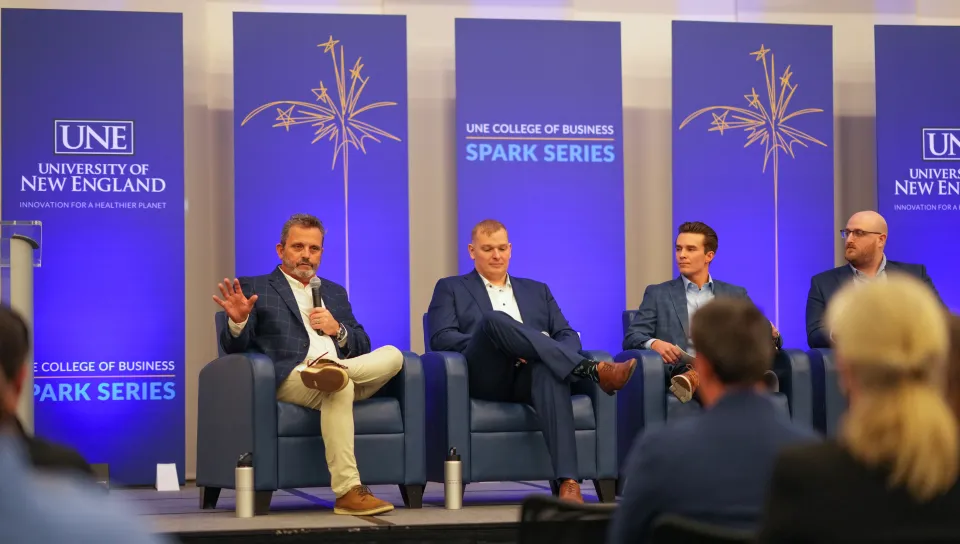
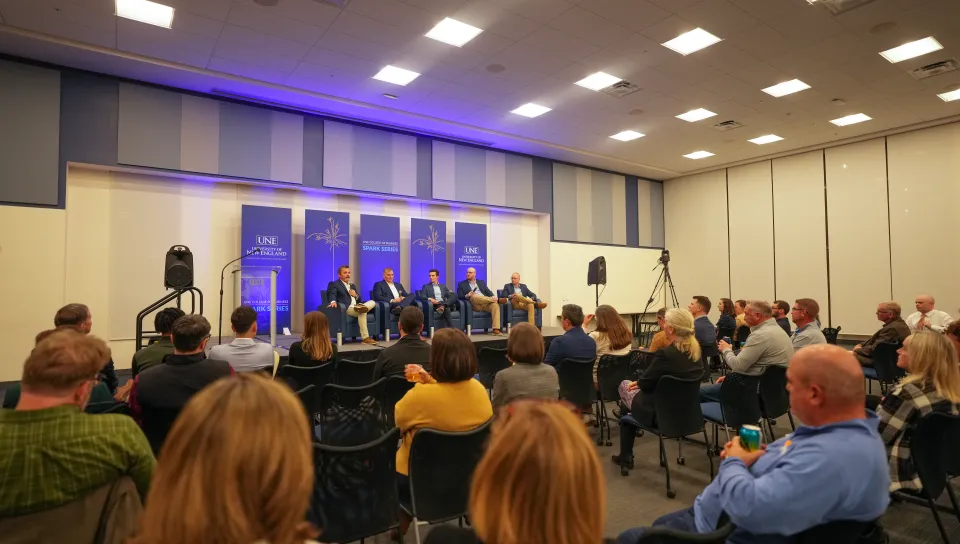
Cybercrime today costs businesses large and small trillions of dollars in losses, said Nate Nappi, the panel’s moderator and the senior director of business development at Uprise Partners— a national leader in cybersecurity solutions based in Portland, Maine — citing research from Cybersecurity Ventures.
Nappi was joined by Kyle Peterson, Uprise Partners senior director of services who specializes in disaster recovery; Luke Goodine, an insurance advisor at Chalmers Insurance Group who assisted in helping White respond to the ransomware attack; and Cody Braunscheidel, cyber incident manager at CFC Response and a former U.S. Department of Defense security officer who has led over 600 incident responses to mitigate cyber attacks.
The discussion offered UNE business students a real-world look inside one of the greatest threats to businesses today, said Nick Corneau (Sports Leadership and Management, ’27). White’s account of having to pivot from a Saturday morning golf game to a “war table” with industry leaders was riveting, Corneau said.
“It's phenomenal just to hear experts with so much knowledge and information. And, of course, information is power, so this helps even beyond business. It helps you in life,” said Corneau.
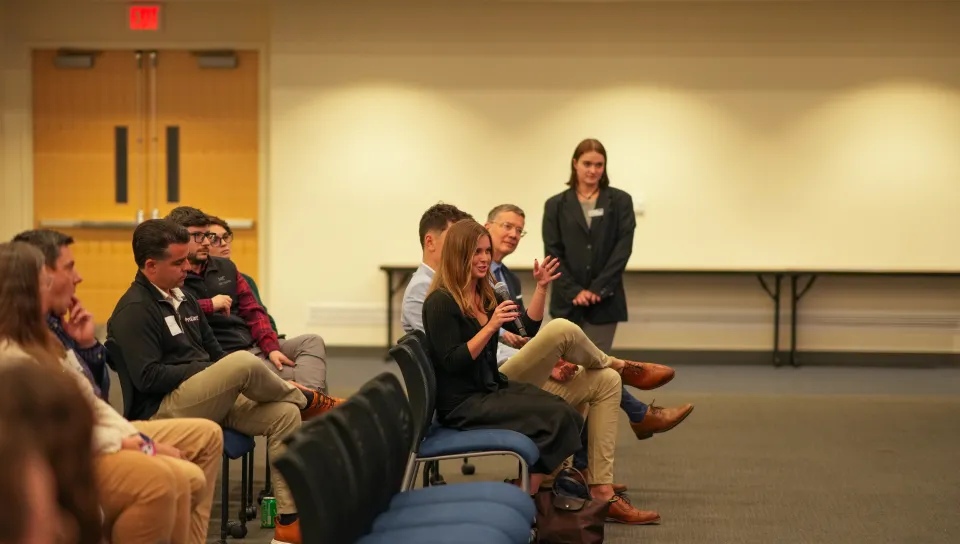
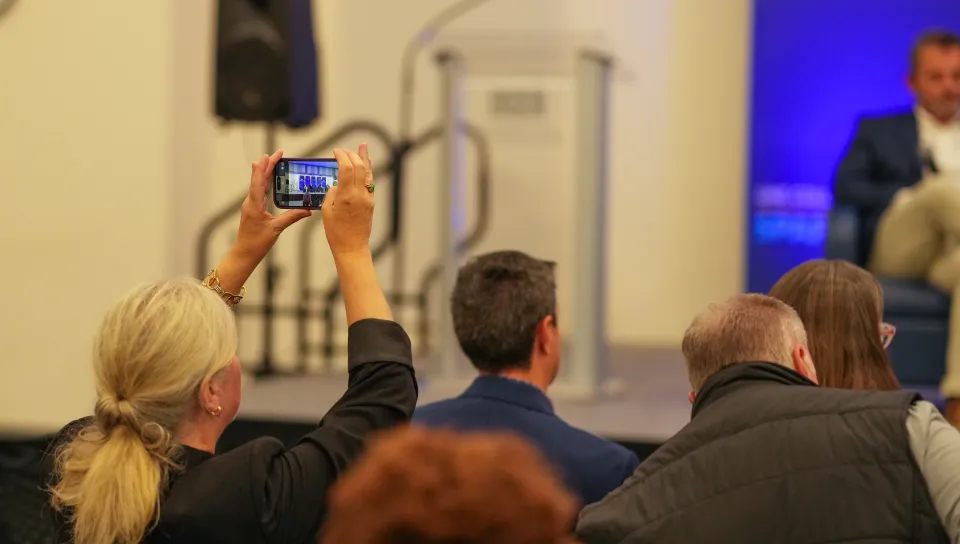
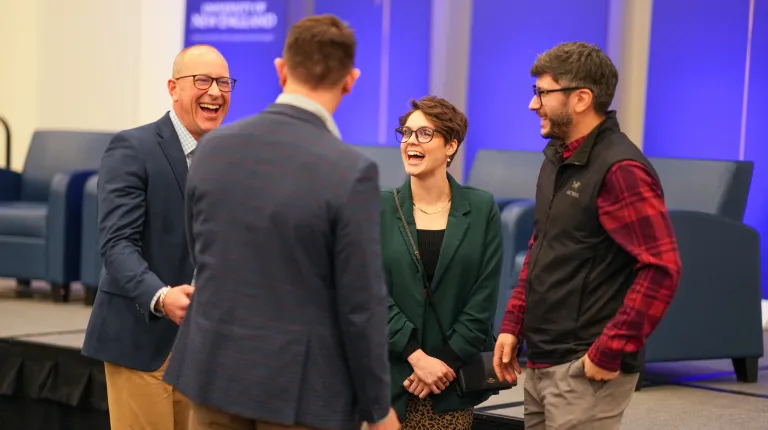
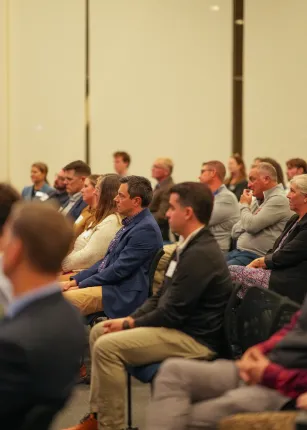

Ultimately, White said, his defense team decided not to pay the cyber criminals and to, instead, dig deep and recreate the data that was lost, “to weather the storm.” It was a decision that cost the company its computer hardware and months of extra work, but, White said, it was a decision they owned.
President James Herbert noted in his remarks that the panel discussion on ransomware shed light on a very timely subject, providing the kind of valuable insight that the University’s thought leaders strive to bring to UNE students.
“The Spark Series is intentionally designed to bridge the gap to connect our students with what happens in the classroom with what happens outside the classroom in industry partnerships in the real world. This is something that fits really perfectly with our emphasis on experiential learning at UNE,” Herbert said.
UNE College of Business Dean Norm O’Reilly, Ph.D., who launched the Spark Business Series with all of that in mind, said events like this one position UNE students for lifelong career success by linking their academic work to real-world expertise and helping build pathways to internships, job placements, and mentorship opportunities, all of which can help launch the careers UNE students seek.
“The Spark Series allows us to demonstrate that preparation matters just as much as response,” O’Reilly said. “UNE students are learning that resilience in business is about building the judgment, adaptability, and collaborative skills that enable leaders like Paul and his team to make sound decisions under pressure in high-stakes situations.”